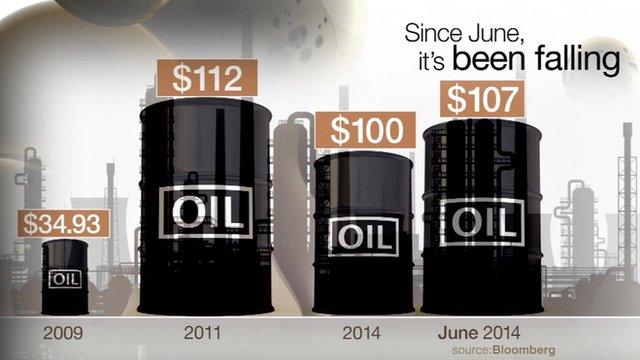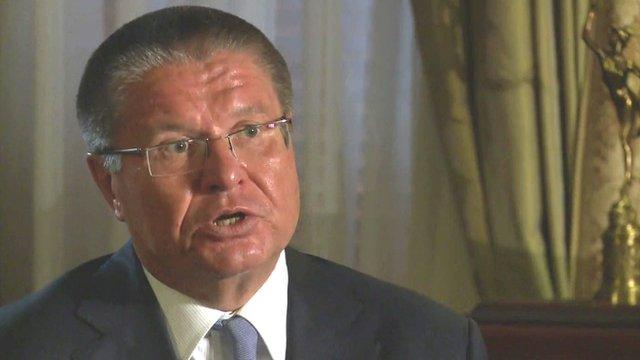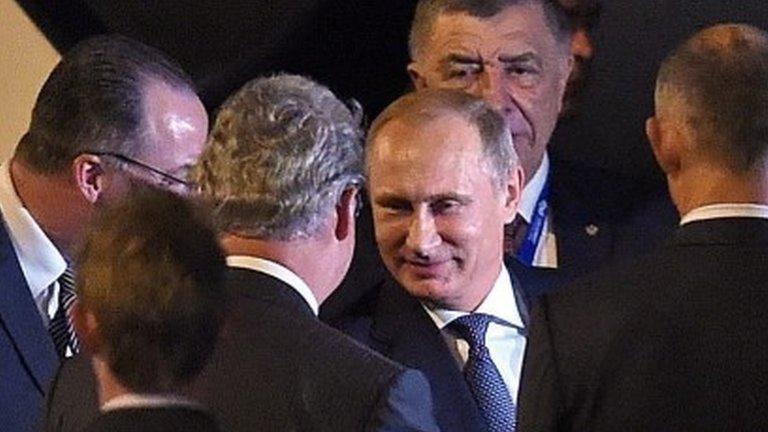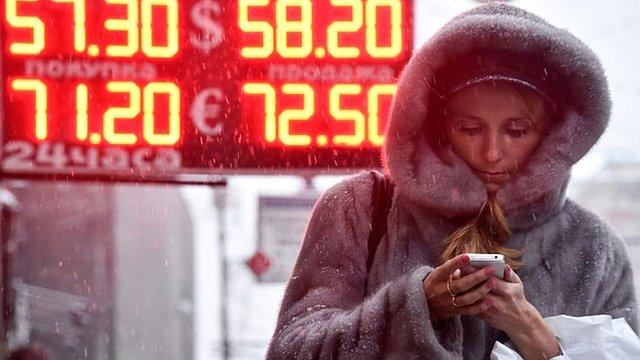Oil price slide and sanctions 'cost Russia $140bn'
- Published
Why does the rouble keep sliding? The BBC examines how we got here
The falling oil price is costing Russia up to $100bn a year, while Western sanctions have hit the country by $40bn, its finance minister has said.
Anton Siluanov made the comments on Monday at an international financial and economic forum in Moscow.
Reports on Monday suggested Russia could cut its oil production by about 300,000 barrels a day in an attempt to support the oil price.
Opec members meet in Vienna this week where falling prices will be discussed.
Vladimir Putin has said that Russia could suffer "catastrophic consequences" from sanctions, the falling oil price and the sliding rouble, while claiming they would have knock-on effects for other countries.
"The modern world is interdependent. It's far from guaranteed that sanctions, the steep fall in oil prices and the loss of value of the national currency will lead to negative results or catastrophic consequences only for us," the Russian president told TASS, the official news agency, on Sunday.
The European Union and the United States imposed sanctions on Russia following its annexation of the Crimea region in Ukraine and its alleged involvement in eastern Ukraine.
Pressure
Member of the Opec oil cartel may decide to cut production to support prices. Brent crude was trading at $80.25 a barrel on Monday, down 11 cents, while US crude was 10 cents lower at $76.41.
Iran, Libya and Venezuela have urged other Opec members to support oil prices by reducing output, although Kuwait has said that a cut was unlikely.
The oil price has been falling since the summer on abundant global supply, partly due to the US shale boom, and lower demand in Europe and Asia. Brent crude has fallen by more than a third and hit a four-year low of $76.76 a barrel on 14 November.
Daniel Bathe, of Lupus alpha Investment, said: "The market would question the credibility of Opec and its influence on global oil markets if there were no cut."
Saudi Arabia, Opec's biggest producer and exporter, has sent mixed messages about a possible cut. Olivier Jakob, an analyst at Petromatrix, said the Saudis could be influenced by the conclusion of talks about Iran's nuclear programme in Vienna on Monday, which are being extended until next summer.
Russian energy minister Alexander Novak said last week that Moscow was considering cutting its oil output, but said the measure had yet to be agreed.
The rouble gained more than 2% against both the US dollar and euro on Monday, helped by the slight recovery in oil prices.
The currency has fallen by almost 30% against the dollar this year.
Russia's central bank had been spending billions in a bid to prop up the rouble, but said earlier this month that it would limit its intervention.
- Published6 November 2014

- Published20 November 2014

- Published14 November 2014

- Published19 January 2015
